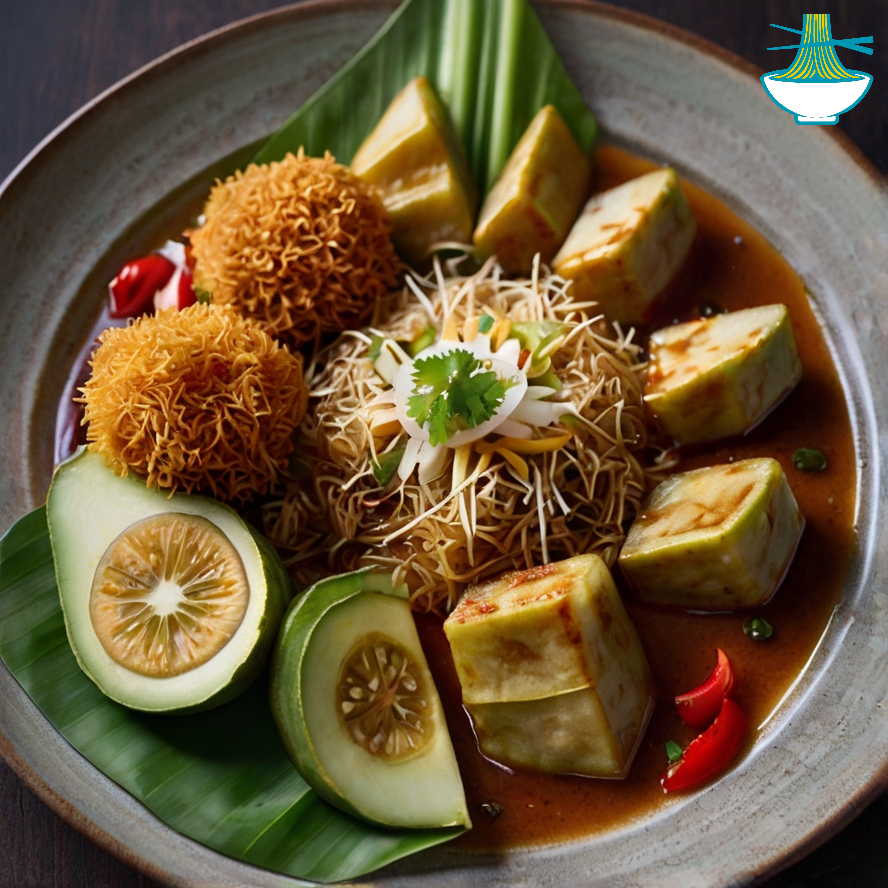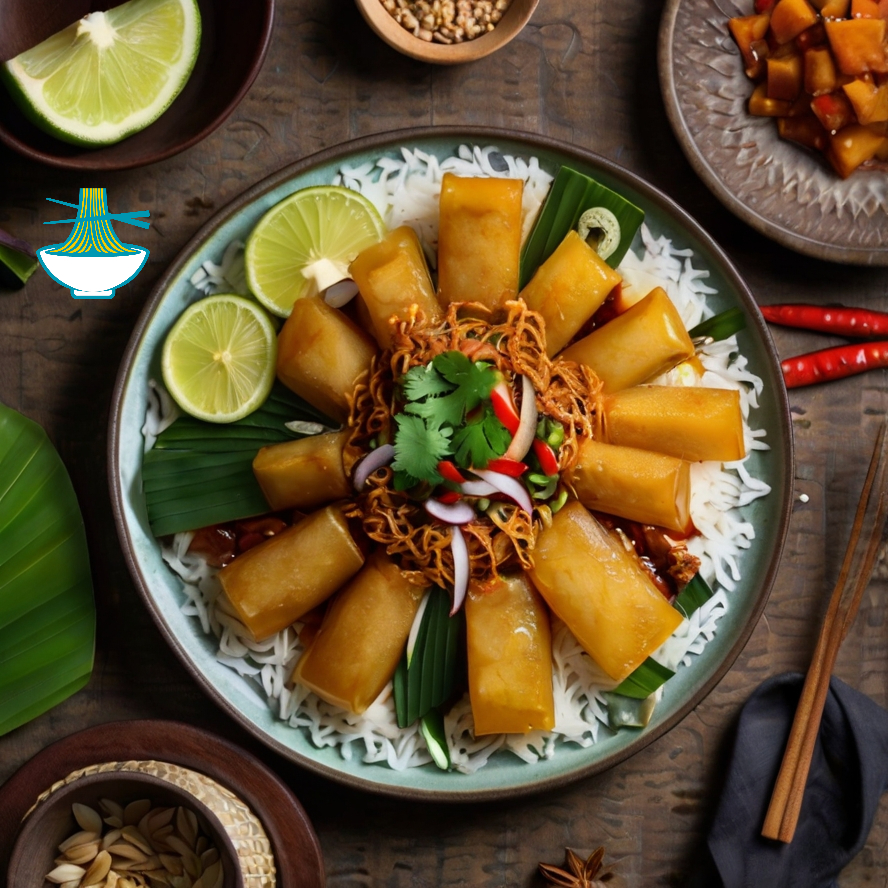Explore the exotic blend of sweet, spicy, and tangy flavors in Indonesia's beloved Rujak. This traditional fruit and vegetable salad dish is a colorful medley of fresh tropical fruits and crisp vegetables, drizzled with a spicy tamarind dressing and sprinkled with crushed peanuts. Each bite offers a delightful contrast of textures and a burst of refreshing flavors, making it a truly unforgettable culinary experience.
Here's a recipe for Indonesia Rujak:
Ingredients:
- 1 unripe mango, peeled and julienned
- 1 cucumber, julienned
- 1 small pineapple, peeled and julienned
- 1 small jicama, peeled and julienned
- 1 firm green apple, julienned
- 1/2 cup peanuts, roasted and crushed
- 1/2 cup palm sugar, grated
- 2-3 red chilies, chopped
- 1/2 tsp shrimp paste (optional)
- 1/2 tsp tamarind paste
- Salt to taste
Instructions:
1- Prepare the fruits and vegetables by peeling and julienning them. Place them in a large bowl.
2- In a small bowl, mix the palm sugar, chopped red chilies, shrimp paste (if using), tamarind paste, and salt. Adjust the sweetness and spiciness according to your taste.
3- Pour the sauce over the fruits and vegetables and toss gently to coat them evenly.
4- Sprinkle the crushed peanuts over the top and serve immediately.
5- Enjoy the vibrant flavors and textures of this traditional Indonesian dish!
Nutritional Values :
Here is the approximate nutritional information for the main ingredients in Indonesia Rujak:
1 Unripe Mango (Julienned):
- Calories: Approximately 70
- Fat: 0g
- Carbohydrates: 18g
- Protein: 1g
Benefits: High in fiber and vitamin C; promotes digestive health and boosts the immune system.
1 Cucumber (Julienned):
- Calories: Approximately 16
- Fat: 0g
- Carbohydrates: 4g
- Protein: 1g
Benefits: Hydrating and low in calories; contains antioxidants and supports skin health.
1 Small Pineapple (Julienned):
- Calories: Approximately 80
- Fat: 0g
- Carbohydrates: 21g
- Protein: 1g
Benefits: Rich in vitamin C and bromelain; aids digestion and boosts the immune system.
1 Small Jicama (Julienned):
- Calories: Approximately 49
- Fat: 0g
- Carbohydrates: 12g
- Protein: 1g
Benefits: High in fiber and water content; supports digestive health and provides a good source of vitamin C.
1 Firm Green Apple (Julienned):
- Calories: Approximately 80
- Fat: 0g
- Carbohydrates: 22g
- Protein: 0g
Benefits: High in fiber and vitamin C; promotes heart health and aids digestion.
1/2 Cup Peanuts (Roasted and Crushed):
- Calories: Approximately 414
- Fat: 35g
- Carbohydrates: 12g
- Protein: 18g
Benefits: Rich in healthy fats and protein; supports heart health and provides energy.
1/2 Cup Palm Sugar (Grated):
- Calories: Approximately 240
- Fat: 0g
- Carbohydrates: 60g
- Protein: 0g
Benefits: Natural sweetener; provides energy and has a lower glycemic index compared to refined sugar.
2-3 Red Chilies (Chopped):
- Calories: Approximately 15
- Fat: 0g
- Carbohydrates: 4g
- Protein: 0g
Benefits: Rich in vitamins A and C; contains capsaicin, which may boost metabolism and reduce inflammation.
1/2 Tsp Shrimp Paste (Optional):
- Calories: Approximately 10
- Fat: 0g
- Carbohydrates: 0g
- Protein: 2g
Benefits: Adds umami flavor; rich in protein and minerals.
1/2 Tsp Tamarind Paste:
- Calories: Approximately 7
- Fat: 0g
- Carbohydrates: 2g
- Protein: 0g
Benefits: Provides a tangy flavor; rich in antioxidants and supports digestion.
Salt to Taste:
- Calories: 0
- Fat: 0g
- Carbohydrates: 0g
- Protein: 0g
Benefits: Enhances flavor; should be used in moderation to manage sodium intake.
Please note that these values are approximate and can vary based on factors such as the specific brand of ingredients and how they are prepared.


Comments